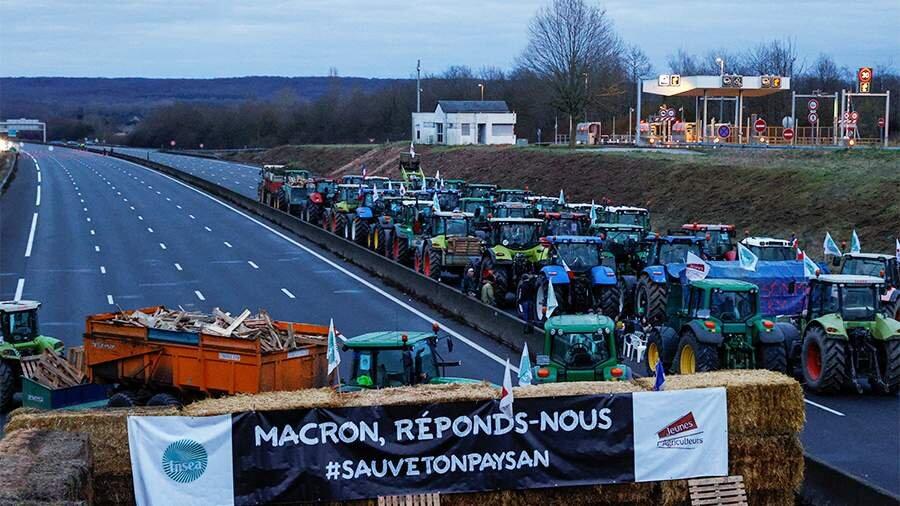Europe putting farmers on drip to let them die silently Article by Gulf Times
An article on farmers' protests in Europe has been published in Qatar’s Gulf Times newspaper.
In the last 12 months, the cost of running Jean-Marie Dirat’s lamb farm in southwest France has jumped by €35,000 ($38,000), driven up by increasingly expensive fertilisers, fuel, electricity and pesticides, according to Gulf Times.
Other farmers in the French southwest, where a nationwide movement started, complain about red tape and restrictions on water usage, as well as competition from Ukrainian imports let into the European Union to help its economy during the war.
Farmers elsewhere in Europe are similarly disgruntled, with protests in Germany, Poland, Romania and Belgium coming after a new farmers’ party scored highly in Dutch elections.
Their blockades and pickets are exposing a clash between the EU’s drive to cut CO2 emissions and its aim of becoming more self-sufficient in production of food and other essentials following Russia’s invasion of Ukraine.
Just five months before elections to the European Parliament, the revolt is fuelling a narrative that the EU is riding roughshod over farmers, who are struggling to adapt to stringent environmental regulations amid an inflation shock.
French far-right leader Marine Le Pen’s lieutenant Jordan Bardella blames “Macron’s Europe” for the farmers’ troubles. Le Pen herself says the EU needs to quit all free trade deals and that her party would block any future agreements, such as with Mercosur countries, if it wins power.
An Elabe poll showed 87 per cent of French people supported the farmers’ cause and 73 per cent of them considered the EU was a handicap for farmers, not an asset.
National governments are scrambling to address farmers’ concerns. But the protests could amplify a shift to the right in the European Parliament and imperil the EU’s green agenda. Poll projections show an “anti-climate policy action coalition” could be formed in the new legislature in June.

Different political catalysts have spurred farmers from France to Romania into action.
In Germany, a week of protests against high fuel prices culminated last month in a rally of 10,000 farmers who gummed up central Berlin’s streets with their tractors and jeered Finance Minister Christian Lindner.
Sander Smit, a former EU parliament adviser, is campaigning for an easing of EU restrictions on agricultural land use.
“The EU must start working again for citizens, farmers, gardeners, fishermen, for communities, families and entrepreneurs,” Smit said.
French unions like the powerful FNSEA have brought discipline to the farmers rallies, avoiding the violence seen during the “yellow vest” protests that rocked France in Macron’s first term.
But unions say they can’t control who farmers will vote for.
Now, however, some farmers say they are tempted to vote for Le Pen’s Rassemblement National (RN) in June in protest at the EU’s climate drive, which they complain crushes production and leaves space for global competitors.
“Europe is putting us on a drip to let us die silently,” Pierre Poma, a 66-year old retired farmer in Montauban in the southwest, said.
Poma, who used to grow peaches, pears and apples, says he had to sell his house because he could not turn a profit. He blames red tape and the EU’s farm-to-fork strategy he abhors.
After visiting farmers’ motorway blockades in recent days, he is confident like-minded parties will be a force to reckon with in Brussels after June.
“Our group is growing, in Germany, in Hungary, elsewhere. It’s the end of a world, the end of the policies of the past,” Poma said.








